Need a substitute for coconut flour? We've compiled a comprehensive list of the 10 best coconut flour substitutes! A bonus flour comparison table is included!
Coconut flour is growing more and more popular these days. It's low carb, keto-friendly, grain-free, and gluten-free.
But what are some alternatives to coconut flour? Scroll down to find out your favorite coconut flour substitute!
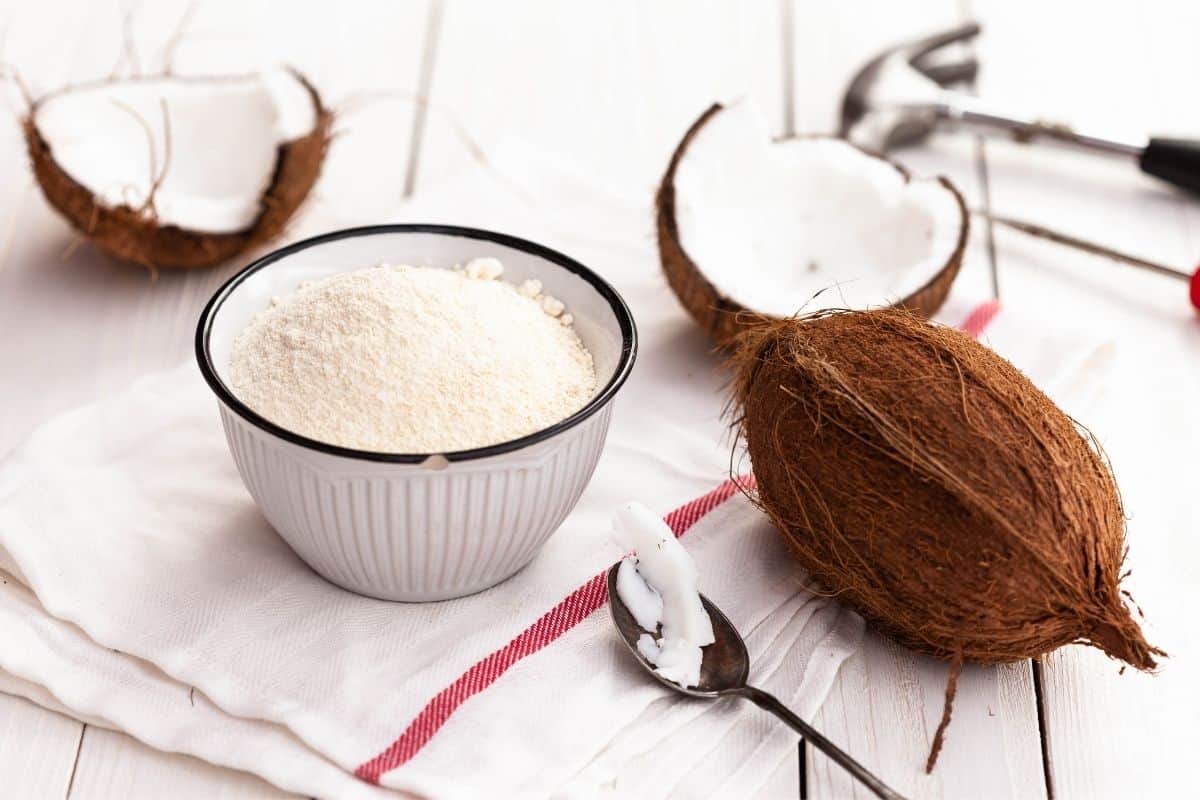
This post was originally published in 2021 and was updated in 2022.
Jump to:
My family loves to gather in the kitchen over anything, but baked goods and bread make us linger slightly longer. So, of course, when I opened the pantry to notice I had no coconut flour, I scoured the internet to see what I could use as a good substitute.
It took some time to find real answers on what to use as a substitute. There was even less information on how much to use and the nutritious value of the substitution.
Almond flour seems to come up continually, but I wanted more than one option to choose from to ensure I could always have an alternative on hand.
See the flour comparison table below for how the different flours compare when it comes to calories, carbohydrates, fiber, net carbs, and protein.
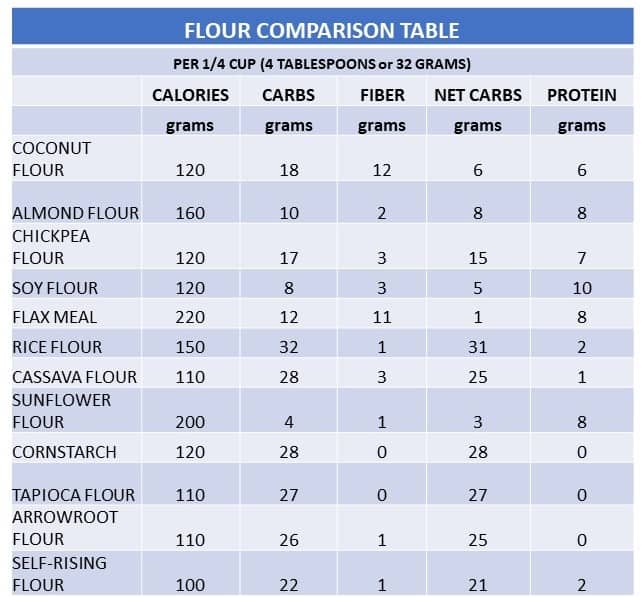
What is Coconut Flour?
So what is coconut flour anyway, and why would we use it in our dishes that need flour? Coconut flour is made up of dried ground coconut meat, a natural byproduct of coconut milk production.
Our go-to coconut flour is Bob's Red Mill Organic Coconut Flour because it's usually available at our local grocery store. However, as it becomes more and more in demand, it can be difficult to find locally.
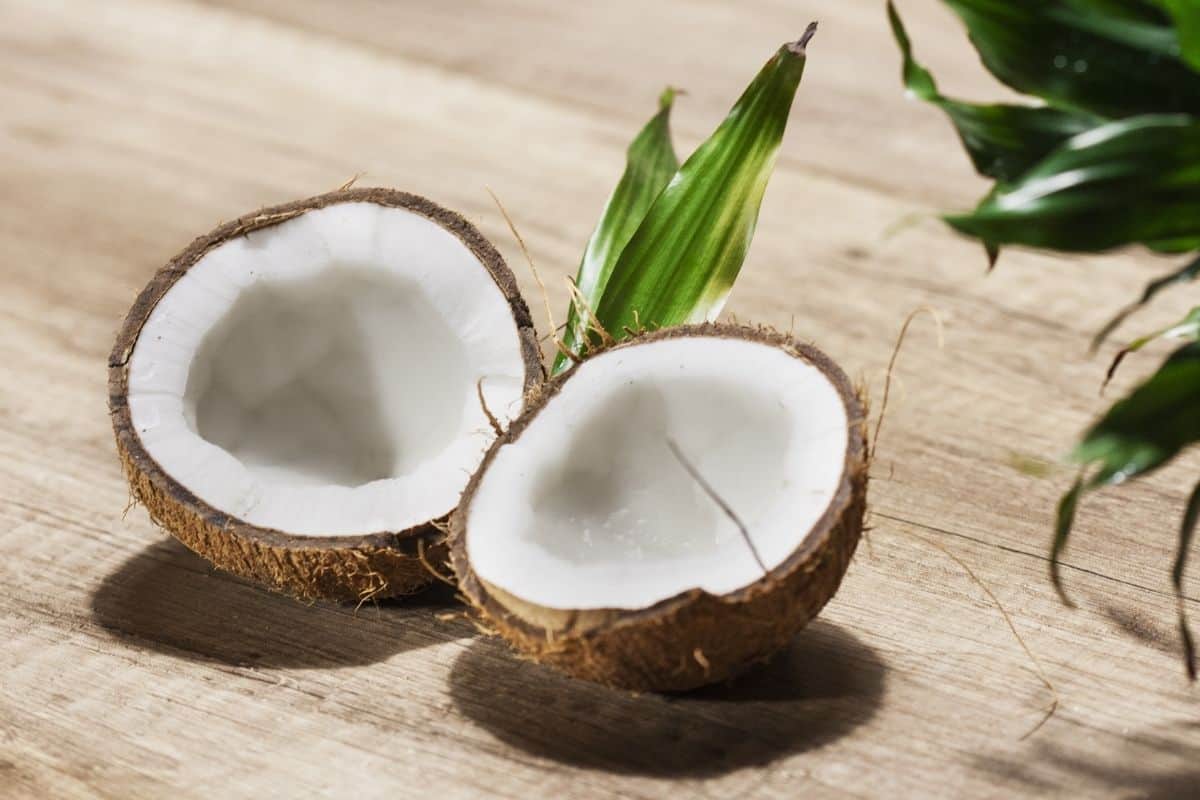
Coconut flour is primarily used for its low glycemic index, which causes slow digestion of its carbohydrate components. There are also other significant properties of this fantastic byproduct.
Its attributes include being higher in protein and fiber and keeping blood sugars low for those who may have diabetes. For facts about coconut flour, such as nutrition, benefits, and more, visit Healthline.com.
Why Substitute For It?
We love to share meals together not only during our day-to-day but holidays and family gatherings. With our growing family, more and more restrictions and allergies came into play, so we had to get creative when continuing with the traditional foods we love.
For those looking for a gluten-free option, coconut flour is a great substitute but not the only option, when looking to bake your favorites.
I was happy to learn this when I went to make my Keto Pancakes with Coconut Flour recipe and could not find coconut flour in my pantry or at my local grocery store.
In looking for the best option, I compiled an ever-growing list of substitutes and thought I would share them with you.
You can view my Google Web Story for the 10 Best Coconut Flour Substitutes.
Pros and Cons
There are always pros and cons to substituting coconut flour for another grain-free flour. You must remember, both coconut flour and coconut flour substitutes don't have a 1:1 ratio to all-purpose flour; there also may be a difference in flavor and textures when baking or thickening your recipe.
In addition to flavor profiles, you also have to take a close look at your recipe. Substitutions sometimes call for more liquid or the adding of other ingredients your substitute lacks.
Lastly, coconut flour is gluten-free and all the options don't have the same attributes.
Let's get into this list of coconut flour substitutes:
What are Some Substitutes
Almond Flour
Almond flour is one of the best substitutions for coconut flour. Made up of ground-blanched almonds that have been skinned and milled down to flour. Almond flour is high in protein, Vitamin E rich, and most often gluten-free.
Note: almond flour is not the same as almond meal! Almond meal is much more course than almond flour and is not recommended as a substitute. Be sure to use super-fine almond flour, like this one from Bob's Mill.
This flour can give All-Purpose Flour a run for its money; the almond flavor profile doesn't take over your dish, which offers the ability to use it in numerous ways and various recipes. I like to use almond flour for the crust for my Low Carb Cheesecake recipe.
While almond flour is a great replacement for coconut flour, there are a few facts you should keep in mind:
- Almond flour is high in Omega fats
- 1 cup of almond flour equates to about 90 almonds
- Almond flour does not absorb liquid as well as coconut flour so you will need to cut back on the amount of liquid used in your recipe
Basically for a recipe, you’ll replace every ¼ cup of coconut flour with at least 1 cup of almond flour (1 to 4 ratio). You’ll also need to decrease any liquid in your recipe (such as oil, milk, eggs, or butter). So if your recipe calls for eggs, you can start by using one less egg for every ¼ cup of coconut flour.
Almond flour is great for most of your favorite meals, treats, and eats you love. If you want to venture out and make your own almond flour, read this post by Minimalist Baker - How to Make Almond Flour.
Chickpea Flour
Chickpea flour is another substitute for coconut flour. Better known as garbanzo flour, and normally used in besan and gram. Garbanzo beans are very versatile beans used in flour and hummus.
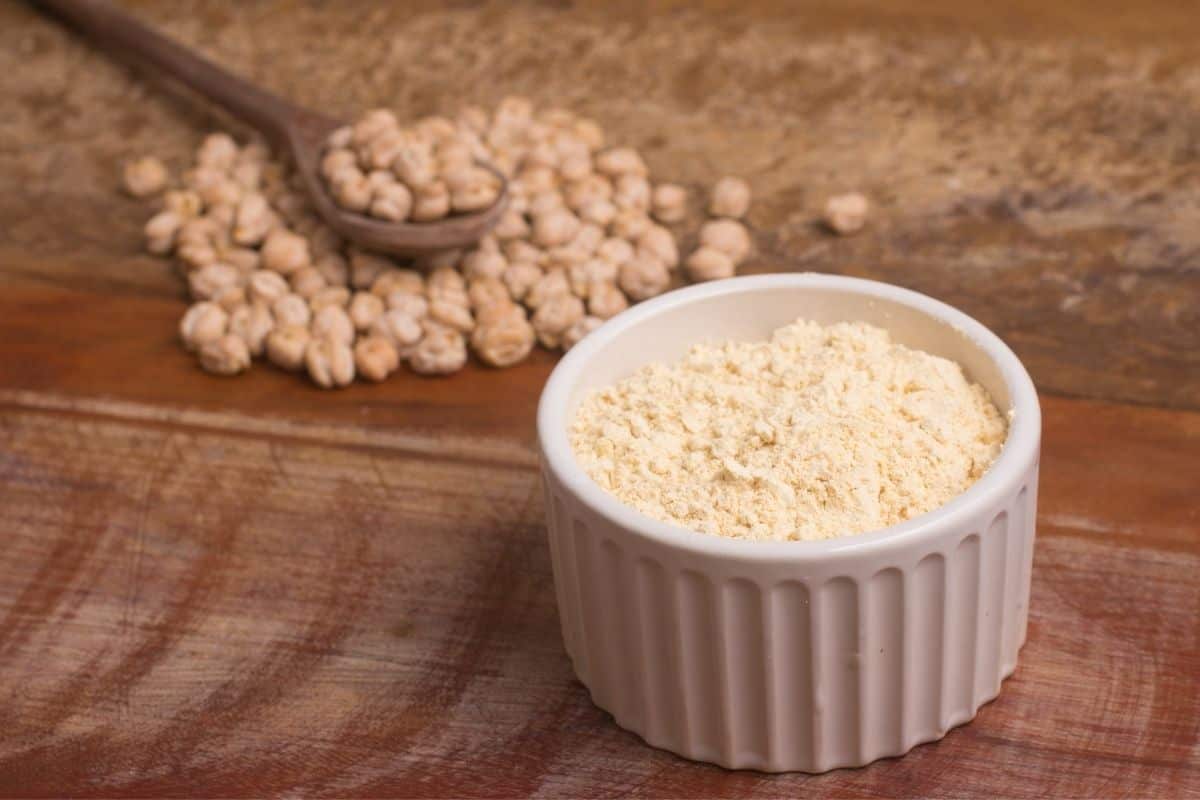
Chickpea flour is one of the most enriching flours you can choose to substitute coconut flour with. Minerals, vitamins, and fiber are waiting for you when you select chickpea flour as a substitute for coconut flour. Anthony's Organic Chickpea Flour is trending now on Amazon.
Chickpea flour is a go-to when you're looking for something nutritious and delicious.
You can use chickpea flour in virtually everything from baking to frying your favorite recipes. Things to remember when using chickpea flour:
- Chickpea flour is great for keto
- Ratio: 1 cup of regular flour for ¾ cup of chickpea flour
- Chickpea flour has fewer calories and carbs than whole wheat flour
- To replace an egg, use ¼ cup chickpea flour, plus ¼ cup water or milk.
Chickpea flour can be stored in your pantry for up to 6 months (keep in an airtight container). It will keep longer in the refrigerator or freezer.
Soy Flour
Soy flour is made up of finely ground full-fat dehulled soybeans or simply put dried out and milled soybeans.
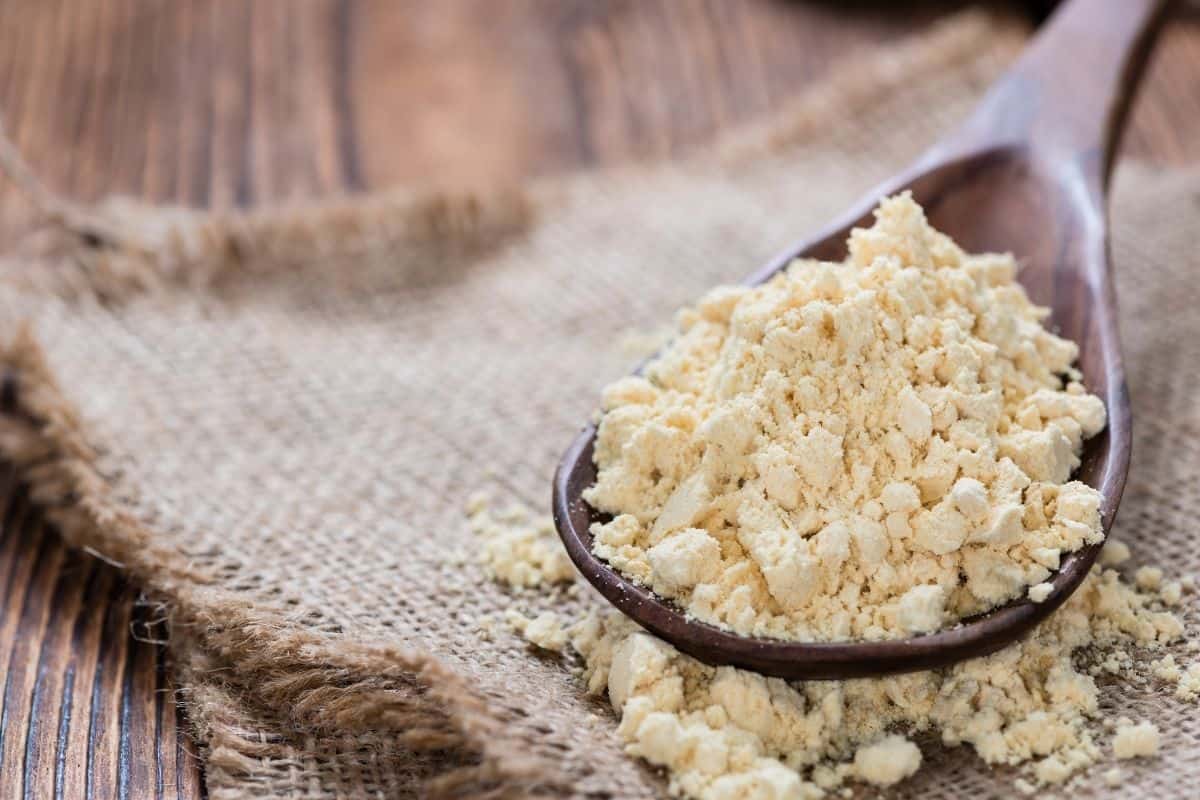
Soy Flour is another coconut flour substitute packed with a nutritious punch. It's high in protein, fiber and is very low in carbohydrates. While you are able to use this in most recipes, note that it is a bean and does have a bean flavor even in flour form.
For more information on the health benefits of soy flour, visit Livestrong.com and read their article.
A couple of other notes:
- When using soy flour as a substitute for coconut flour, you have to double the amount of flour.
- Soy flour also calls for an increase in your wet ingredients.
Definitely a great option for coconut flour substitution in most of the recipes we love to make. Did you know that you can replace an egg in a casserole or baked goods by combining 1 tablespoon of soy flour with 1 teaspoon of water? Neat little fact. Ready to try soy flour? Consider Scratch Premium Defatted Soy Flour. It's readily available on Amazon.
Flax Meal
Flax Meal is excellent when substituting for coconut flour, made up of plant-based foods full of healthy fats, antioxidants, and fiber. Remember flax meal does have that nutty taste, so you may want to keep that in mind when you’re using it as a coconut flour replacement.
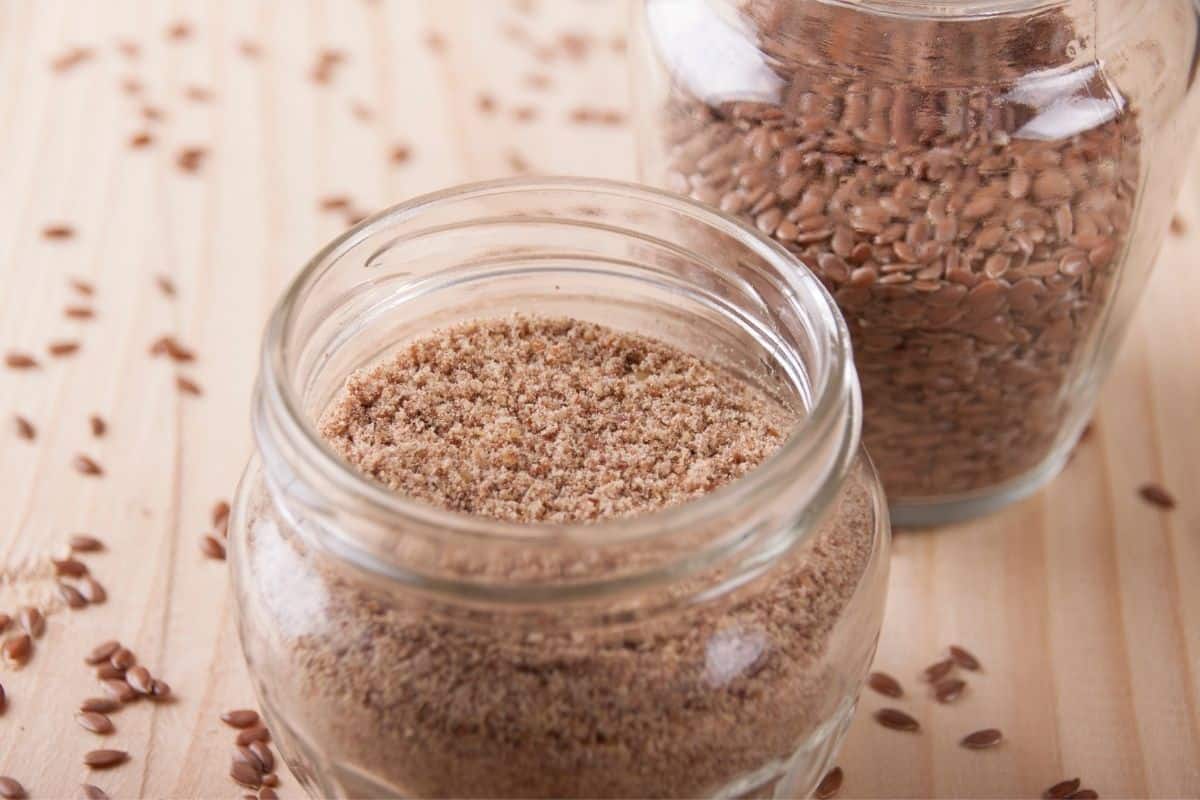
A couple of notes when using flax meal:
- High in Omega 3 fats
- High in protein
- You’ll have to pay close attention to your ratios as you’ll be using three times more than coconut flour.
Flax meal is still top of the list for its versatile use and its nutritional benefits for your body. My favorite brand of flax meal is from Now Foods.
Ready to try some Flax Meal pancakes? Give this Flax Seed Meal Pancakes recipe from Slender Kitchen a try!
Rice Flour
Rice flour is an excellent add-in when substituting for coconut flour for your meal planning. Yes, rice flour is what you think it is: grains of rice are milled finely into flour.
One of the best things about rice flour is choosing brown or white rice flour to fit your diet regimen.
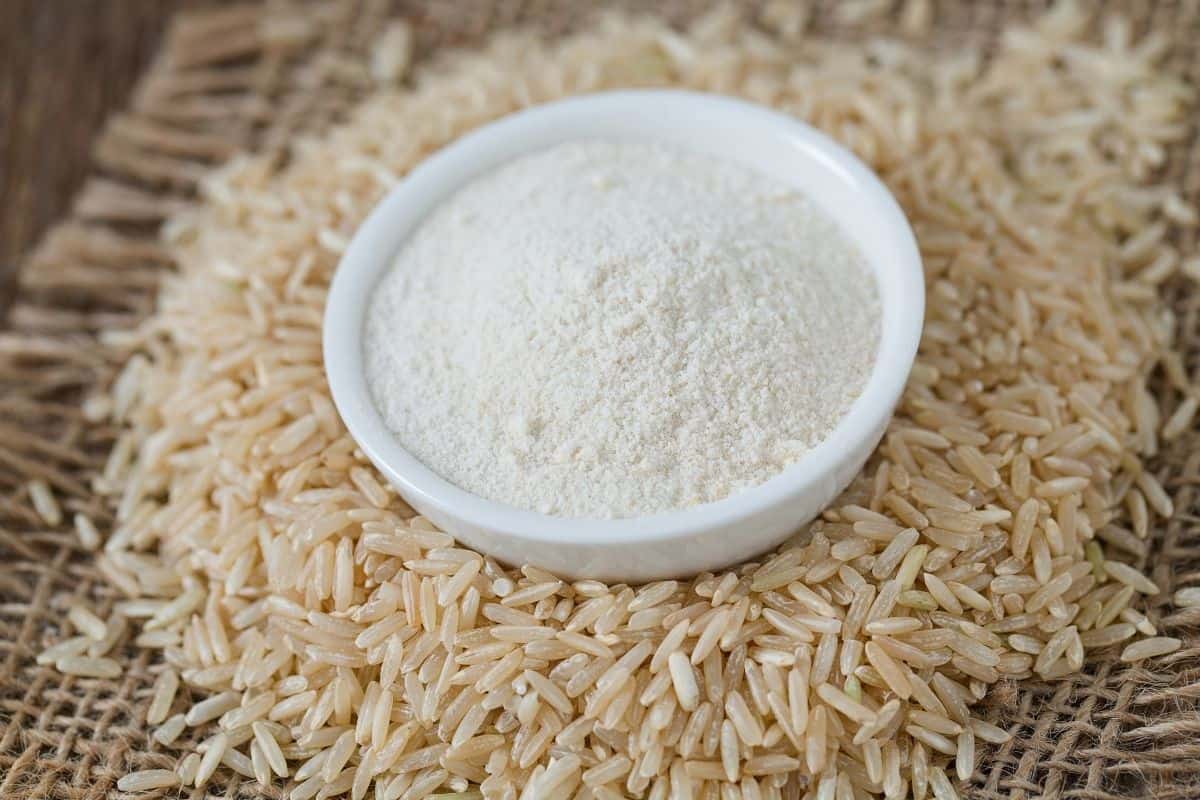
Rice flour still gives you that grain-free flour that most are looking for as an alternative to coconut flour or all-purpose flour. A couple of things to keep in mind:
- Rice flour has a 3 to 1 ratio when substituting for coconut flour
- Brown rice gives you a nuttier flavor
- Rice flour has a very soft consistency
Rice flour is also extremely easy to digest, much more so than bean flour. This naturally flavored coconut flour substitute works great in both frying and baking.
When you're ready to give rice flour a try, you may want to consider trying Naturevibe Botanicals Organic White Rice Flour.
Did you know that rice flour is also known for its flawless skin benefits? Save some of that rice flour and head over to NDTV Food for homemade rice flour packs for the skin!
Cassava Flour
Cassava flour is the only substitution for coconut flour made from the yuka root. It’s still gluten-free and has a light earthy flavor.
Be aware that cassava flour is high in carbohydrates which may not be great for those looking to use it as a coconut flour substitute for its low glycemic index.
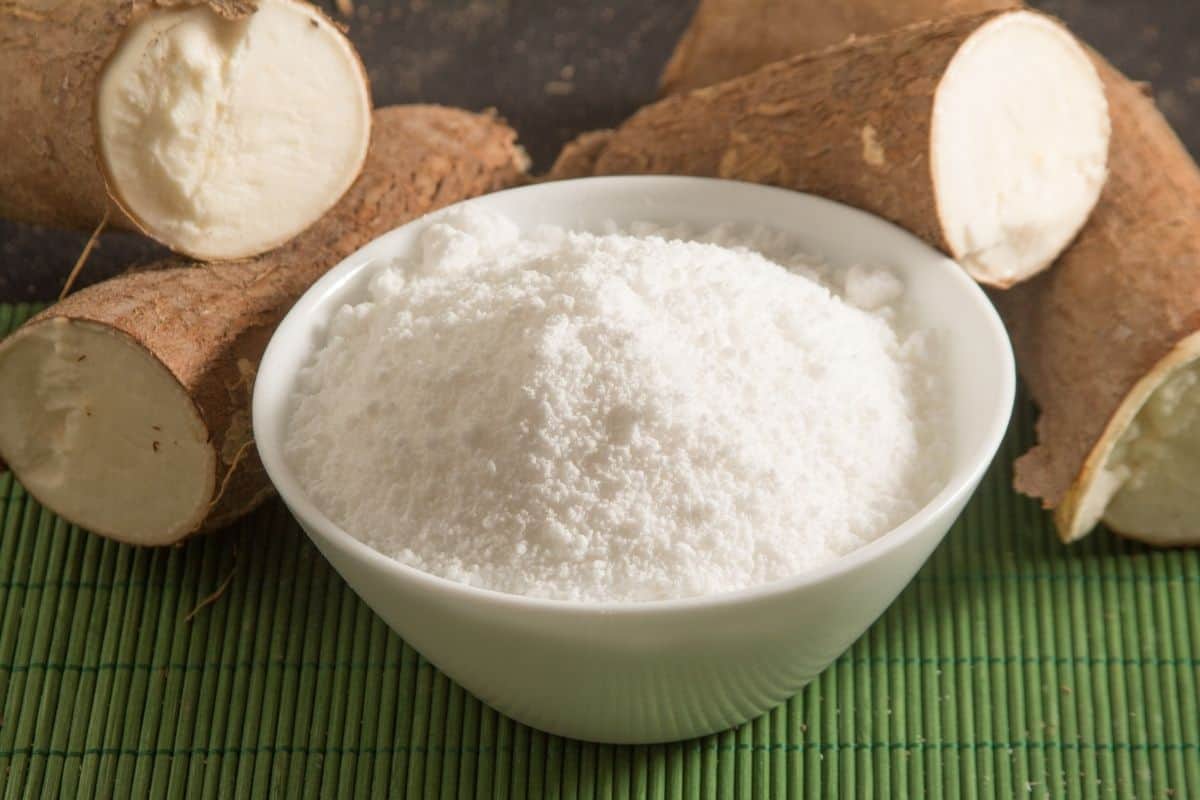
A couple of things to keep in mind:
- With its light flavor, cassava flour can be used in both savory and sweet dishes
- To substitute for coconut flour, you’ll need almost a 4 to 1 ratio when measuring out your recipes
- Cassava flour is a great source of Vitamin C and fiber
While Cassava flour is a great substitute, it's not the healthiest of choices, but if you're looking for a flour that absorbs flavor, this is the one. Otto's Naturals Cassava Flour is made from 100% yuka root.
Sunflower Seed Flour
Sunflower seed flour is made from raw sunflower seeds that are grinned finely into flour, for those that want both great flavor and nutritional value. Sunflower seed flour is filled with vitamin E, Vitamin B, and a ton of antioxidants.
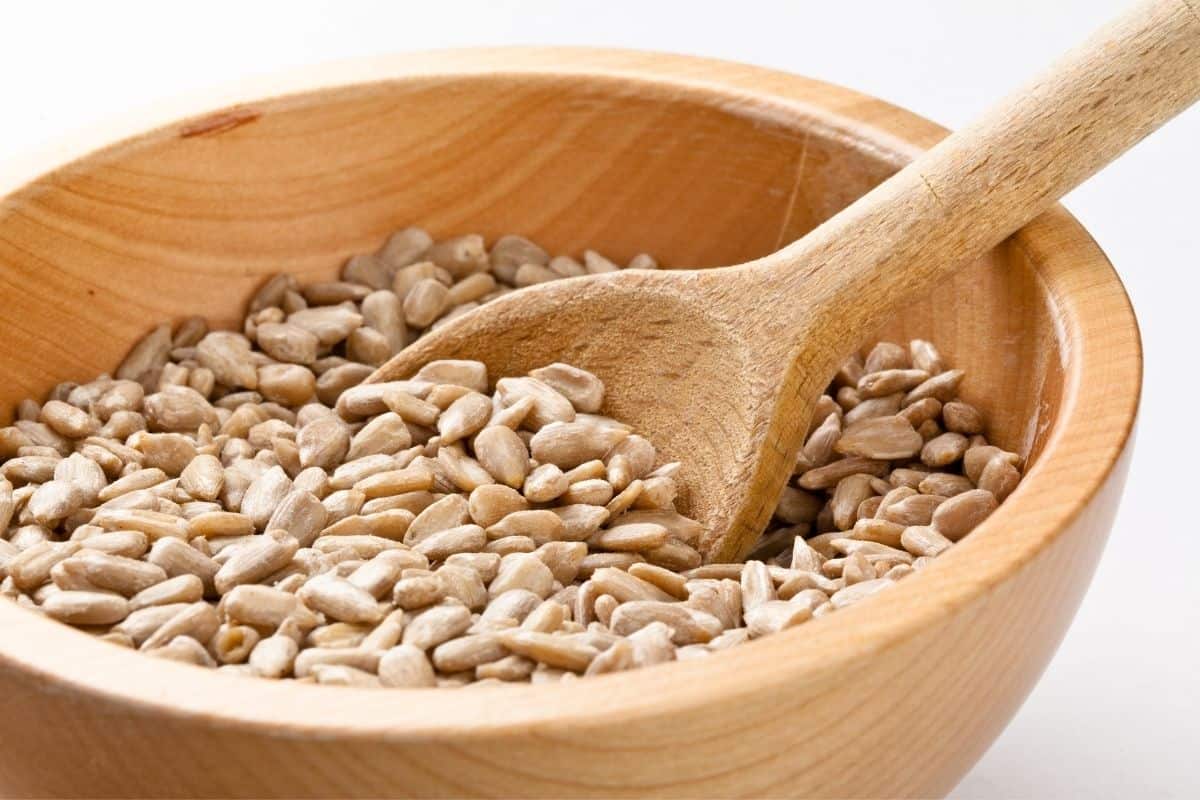
Its light flavor makes it a great go-to when substituting for coconut flour in your favorite sweet and savory dishes. A couple of things to note when using sunflower seed flour:
- Sunflower seed flour has a faint sweet and nutty flavor
- It may not be easily accessible in stores but can be easily be made at home (see All Day I Dream About Food's sunflower seed flour recipe here)
- Ratios differ drastically from recipe to recipe
Sunflower seed flour is a great coconut flour substitute and will give you that smooth consistency that you may have been looking to use. Add this to your list of go-to's! Beyond the Equator sunflower seed flour is extra fine ground.
Frequently Asked Questions
The quick answer to that is yes. This flour is a carbohydrate extracted from the endosperm of corn. Cornstarch is used in a multitude of ways but is typically known as a thickening agent for desserts and savory dishes.
Of course, you would have to be mindful of ratios and the recipes you're choosing to substitute the flour in. The measurable is usually 2 cups of cornstarch for every 1 cup of flour.
Yes, tapioca flour is a great coconut flour substitute and is also primarily used for thickening agents. Also, a rich choice if you're looking for a flour that has additional protein, fiber, and nutrients.
Tapioca flour is flavorful and makes for a rich flavor great for crispy crust and a chewy inside. Anthony's Organic Tapioca Flour is derived from organically grown Manioc root (Manihot esculenta).
Tapioca flour has a 1 to 1 ratio when substituting for coconut flour.
Self-rising flour is not a great substitute for coconut flour due to being used in dishes that need and does contain gluten.
Sometimes mixed up with all-purpose flour but they react to ingredients in different ways. Self-rising flour can only be used as a substitute for coconut flour in very particular recipes.
Pending the reason for the substitution, self-rising flour is easily accessible and tastes great. Self-rising flour is normally used in recipes that call for salt and baking powder (leavening agent) as it helps cakes and breads to rise.
Note: self-rising flour is not the healthiest of flours and doesn’t contain as many nutrients as some of the above suggestions.
Arrowroot flour is not as standard as the rest on our list but is still a good substitution for coconut flour. This flour is both gluten and grain-free and comes from a substance extracted from a root of a plant called Maranta arundinacea. The ratio is 1:1.
Arrowroot flour is used in both sweet and savory recipes due to its neutral flavor. It's widely used as a thickener for gravies, sauces, and stews. It's packed with nutrients and has some great health properties when it comes to digestion properties.
Coconut powder is not the same as coconut flour, even though some may confuse the two. Coconut powder is simply dehydrated coconut milk that you can store and add water to use as coconut milk.
While coconut flour, on the other hand, is grated mature coconut flesh that is eventually dried and milled into ground coconut flour.
Expert Tips
Overall, coconut flour has many substitutes, and as we grow and learn about digestion, allergies, and flavor pallets I’m sure we will find more.
What I take from the research I've done is to look at what you are looking for flour to do in your recipe. Knowing why you need to substitute will help you easily choose which substitute is best for you and your family.
More Recipe Ingredient Substitutes
Practical Steps to Take
- Screenshot the infographic in this post; it can be used as a quick go-to.
- Be sure to pin this on Pinterest as a reference.
- Be sure to read the labels when choosing which flour to use.
Be sure to let us know if you’ve used any substitute for coconut flour that's not listed, we would love to hear about them in the comments. Stay connected with us by signing up for our newsletter.
If you'd like more easy recipes sent straight to your email, subscribe and get a free 5-day meal plan! How easy is that!


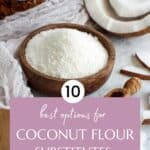


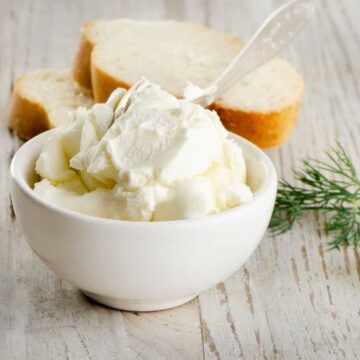

Alana
Hi Anne, thank you so much for this list! I’m so glad to have come across it, I’m craving a chocolate cake without ingredients, so attempting to do a keto mug cake and didn’t have coconut flour, so I appreciate this! thank you
Anne Clark
You’re so welcome, Alana! Thanks for letting me know
Marie
So is an Almond flour substitute for Coconut Flour a 1:1 ratio? That doesn't seem right to me and I can't find an explicit ratio in your article. Thanks for this! Being new to both low carb and Gluten free is such a learning curve! Everything I know about baking has been turned on it's head!
Anne Clark
Hi Marie! Thank you for your question. Substituting almond flour for coconut flour can be VERY tricky because they are so different. Basically for your recipe, you’ll replace every 1/4 cup of coconut flour with at least 1 cup of almond flour (1 to 4 ratio). You’ll also need to decrease any liquid in your recipe (such as oil, milk, eggs, or butter). So if your recipe calls for eggs, you can start by using one less egg for every 1/4 cup of coconut flour. Like I mentioned, it can be tricky but can be done. I will update my post to better reflect this so thank you again for your comment!
Dale Almond
This is a great list, thank you! Can you tell me if the substitution of tapioca flour in place of coconut flour is 1:1? Ratios are mentioned for other flours, but not this one. Many thanks!
Anne Clark
Hey Dale! Thank you for your question. There is a 1:1 ratio for substituting tapioca flour for coconut flour. Thanks for pointing out, I will add to my post!
Dale Almond
And thank you! I got the answer I was hoping for, lol.
Jenny Caneen-Raja
Thanks for all this info: it's really helpful! One note regarding chickpea flour. Garbanzo bean flour and Besan won't produce identical results as they're not processed in the same manner. Besan flour has had the husk of the bean removed before grinding, thus making it a far more silky (and less fiber-rich) flour. If you've ever had really smooth and delicately flavored hummus and wondered why yours didn't turn out that way, it's because someone went through the trouble of removing ALL the skins from the beans - that's a good analogy for the differing results from regular garbanzo bean flour and Besan.
Anne Clark
Thank you so much, Jenny! That’s very interesting and great information for everyone who visits my site. Thank you for sharing 🙂
Anne